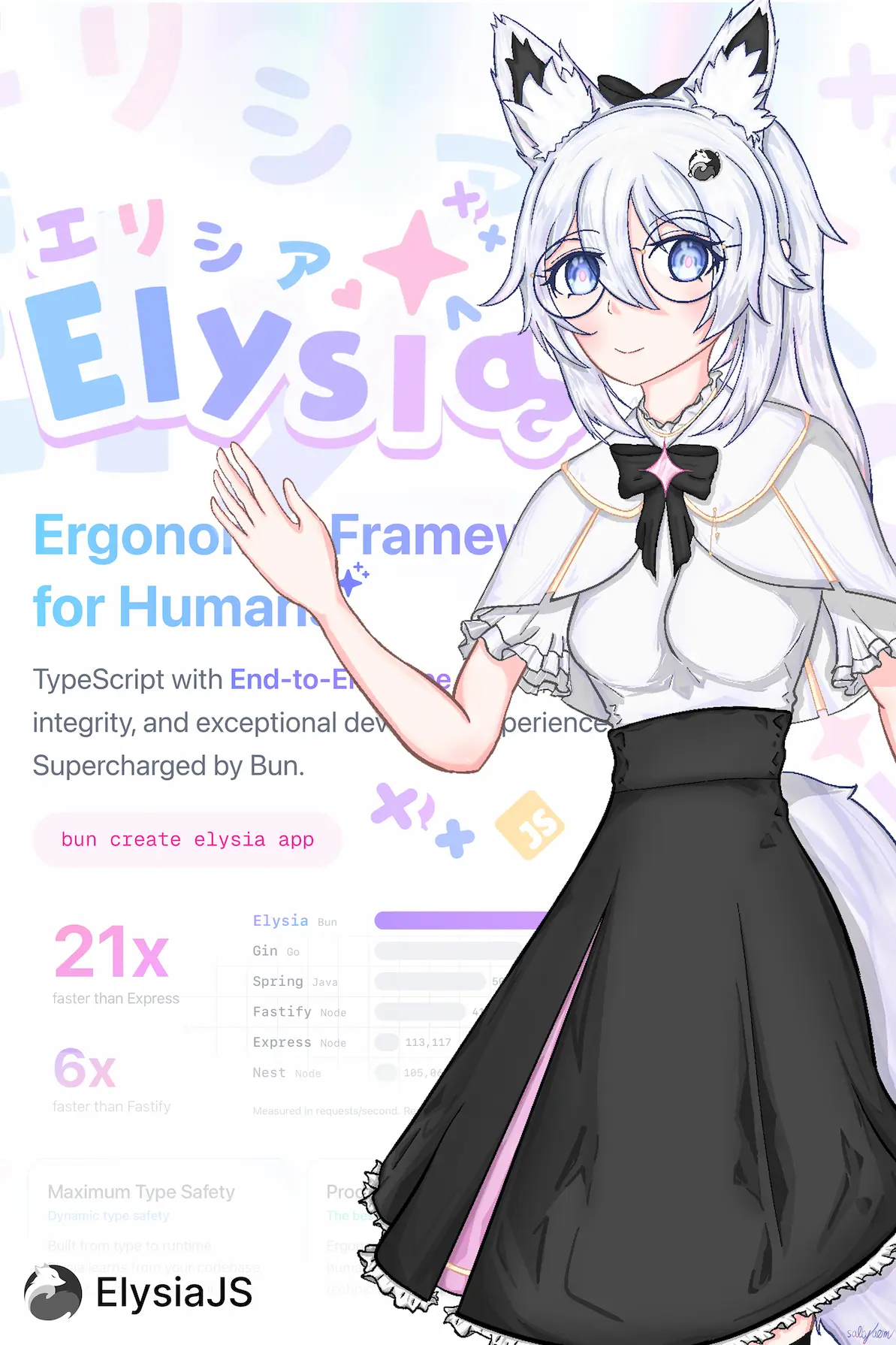主题
Eden 获取
¥Eden Fetch
这是一个类似于 Eden Treaty 的替代方案。
¥A fetch-like alternative to Eden Treaty.
借助 Eden Fetch,你可以使用 Fetch API 以类型安全的方式与 Elysia 服务器交互。
¥With Eden Fetch, you can interact with Elysia server in a type-safe manner using Fetch API.
首先导出你现有的 Elysia 服务器类型:
¥First export your existing Elysia server type:
typescript
// server.ts
import { Elysia, t } from 'elysia'
const app = new Elysia()
.get('/hi', () => 'Hi Elysia')
.get('/id/:id', ({ params: { id } }) => id)
.post('/mirror', ({ body }) => body, {
body: t.Object({
id: t.Number(),
name: t.String()
})
})
.listen(3000)
export type App = typeof app然后导入服务器类型,并在客户端使用 Elysia API:
¥Then import the server type, and consume the Elysia API on client:
typescript
import { edenFetch } from '@elysiajs/eden'
import type { App } from './server'
const fetch = edenFetch<App>('http://localhost:3000')
// response type: 'Hi Elysia'
const pong = await fetch('/hi', {})
// response type: 1895
const id = await fetch('/id/:id', {
params: {
id: '1895'
}
})
// response type: { id: 1895, name: 'Skadi' }
const nendoroid = await fetch('/mirror', {
method: 'POST',
body: {
id: 1895,
name: 'Skadi'
}
})错误处理
¥Error Handling
你可以像《Eden 条约》一样处理错误:
¥You can handle errors the same way as Eden Treaty:
typescript
import { edenFetch } from '@elysiajs/eden'
import type { App } from './server'
const fetch = edenFetch<App>('http://localhost:3000')
// response type: { id: 1895, name: 'Skadi' }
const { data: nendoroid, error } = await fetch('/mirror', {
method: 'POST',
body: {
id: 1895,
name: 'Skadi'
}
})
if(error) {
switch(error.status) {
case 400:
case 401:
throw error.value
break
case 500:
case 502:
throw error.value
break
default:
throw error.value
break
}
}
const { id, name } = nendoroid何时应该使用 Eden Fetch 而不是 Eden Treaty
¥When should I use Eden Fetch over Eden Treaty
与 Elysia < 1.0 版本不同,Eden Fetch 不再比 Eden Treaty 更快。
¥Unlike Elysia < 1.0, Eden Fetch is not faster than Eden Treaty anymore.
首选项基于你和你的团队的协议,但我们建议使用 Eden 条约。
¥The preference is base on you and your team agreement, however we recommend to use Eden Treaty instead.
对于 Elysia < 1.0:
¥For Elysia < 1.0:
使用 Eden Treaty 需要大量的底层迭代才能一次性映射所有可能的类型,而 Eden Fetch 则可以延迟执行,直到你选择合适的路径。
¥Using Eden Treaty requires a lot of down-level iteration to map all possible types in a single go, while in contrast, Eden Fetch can be lazily executed until you pick a route.
由于类型复杂且服务器路由众多,在低端开发设备上使用 Eden Treaty 会导致类型推断和自动补齐速度缓慢。
¥With complex types and a lot of server routes, using Eden Treaty on a low-end development device can lead to slow type inference and auto-completion.
但是由于 Elysia 对许多类型和推断进行了调整和优化,Eden Treaty 在相当多的路由上表现非常出色。
¥But as Elysia has tweaked and optimized a lot of types and inference, Eden Treaty can perform very well in the considerable amount of routes.
如果你的单个进程包含超过 500 条路由,并且你需要在单个前端代码库中使用所有路由,那么你可能需要使用 Eden Fetch,因为它的 TypeScript 性能明显优于 Eden Treaty。
¥If your single process contains more than 500 routes, and you need to consume all of the routes in a single frontend codebase, then you might want to use Eden Fetch as it has a significantly better TypeScript performance than Eden Treaty.
